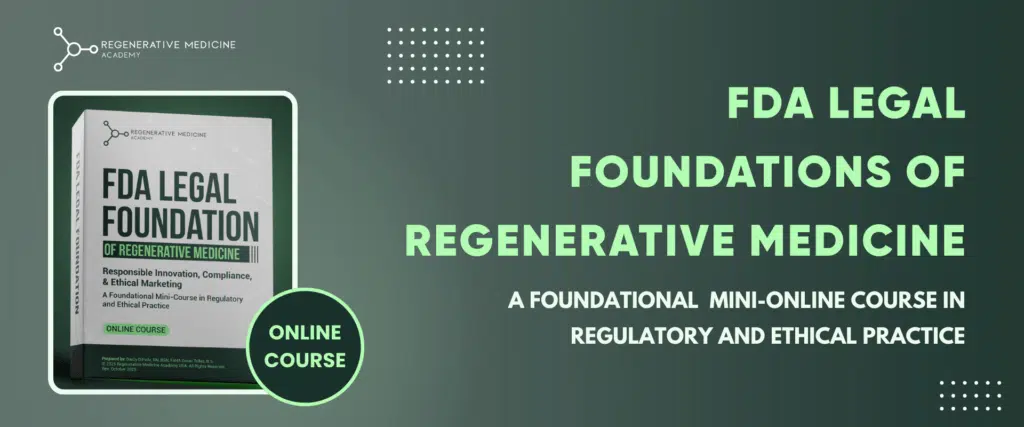At the Regenerative Medicine Academy, we believe innovation must be paired with compliance and ethics. This mini course distills complex FDA and legal concepts into clear, actionable lessons that every regenerative professional can understand.
Each lesson combines expert insights, real world examples, and references to official FDA and FTC documents, helping you translate regulatory language into practical steps for your clinic, research project, or marketing strategy.

